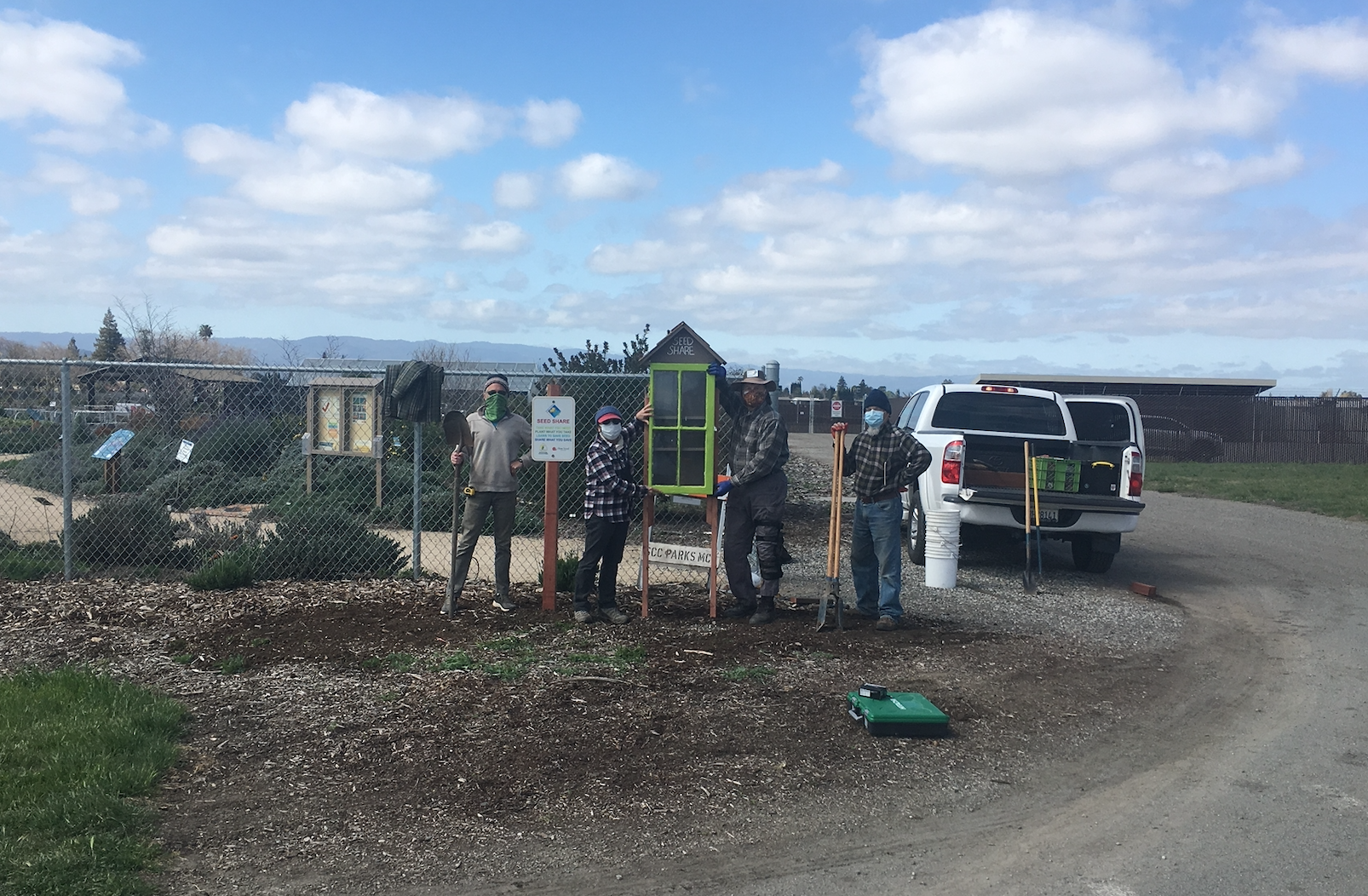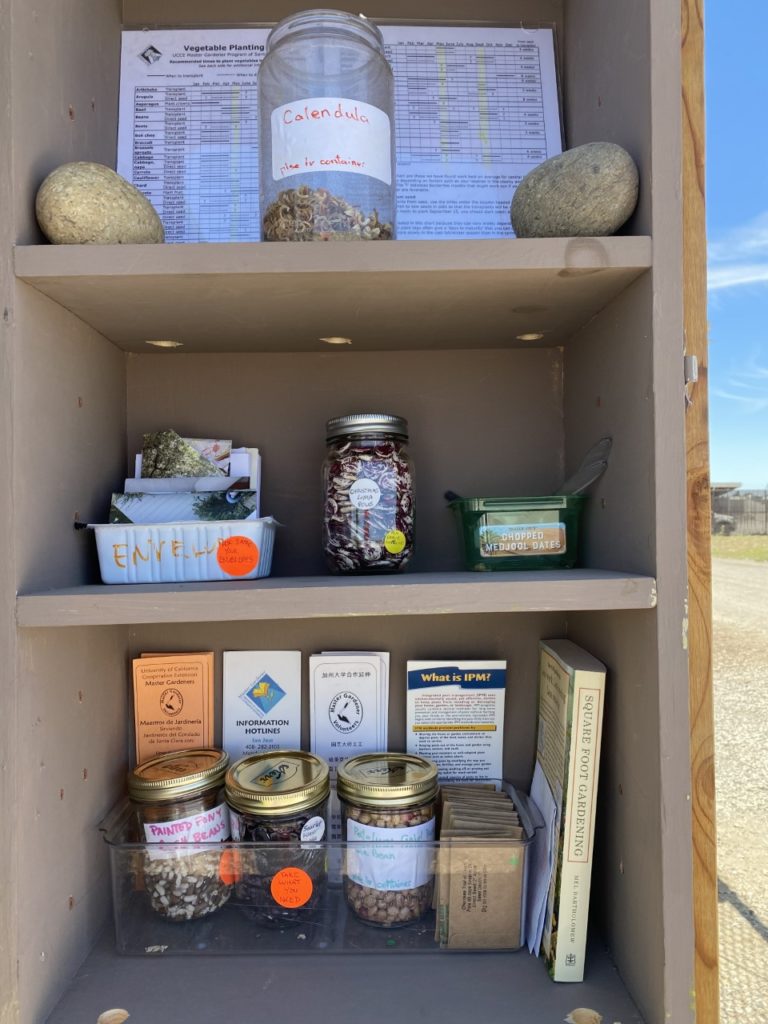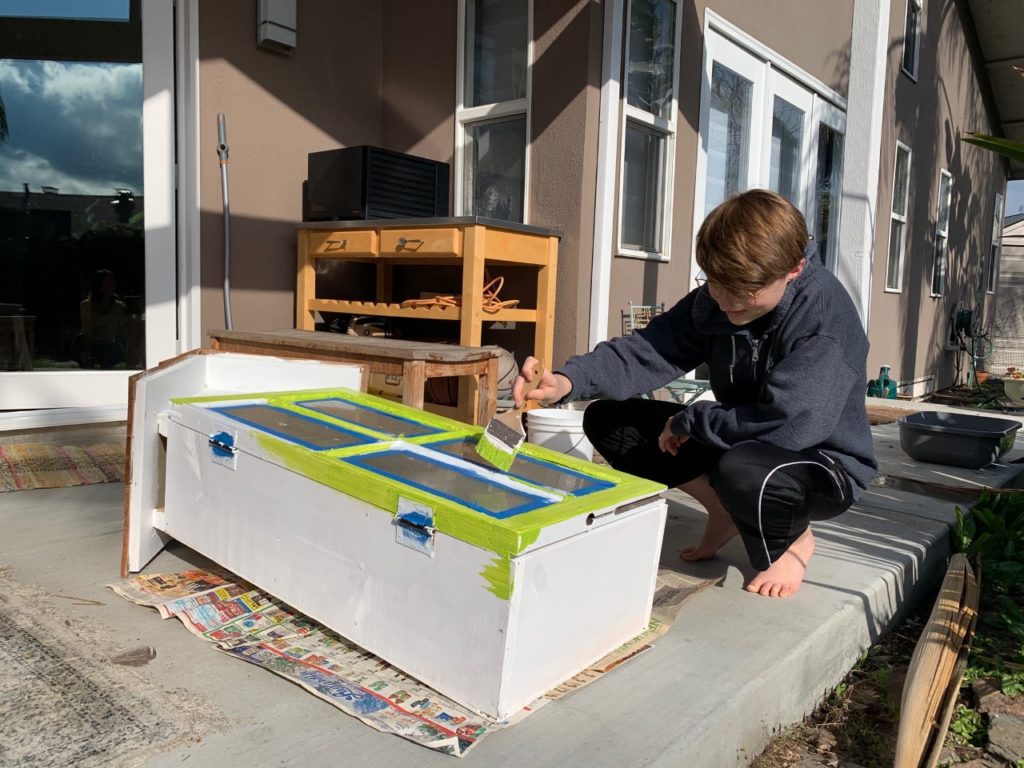By Michelle DiMuzio, Communications Coordinator

When the pandemic broke out, the fragility of our supply chain was spotlighted, especially in the world of seeds. Seed companies, garden stores and nurseries were running out of seeds and garden materials; seed libraries that were housed in libraries were inaccessible due to the closure of buildings.
 Hillie Salo, a member of the leadership team for California’s Slow Food South Bay and a Master Gardener through the University of California Cooperative Extension, found herself with a plethora of extra seeds during the shortage. She decided to gather the seeds and put them outside her house with a sign that said “plant seeds, share seeds.” Hillie then received a note from her neighbor:
Hillie Salo, a member of the leadership team for California’s Slow Food South Bay and a Master Gardener through the University of California Cooperative Extension, found herself with a plethora of extra seeds during the shortage. She decided to gather the seeds and put them outside her house with a sign that said “plant seeds, share seeds.” Hillie then received a note from her neighbor:
“I was walking my dog during our shelter in place and feeling sad that I wouldn’t be able to go to the nursery this year to get plants to start my garden. One of my neighbors left a box of seeds out with squash and beans and other seed varieties. I just wanted to thank that person — my garden is thriving! We are eating beans everyday, we are giving them out to all my neighbors. I will be saving the seeds for next year. I have been looking for things to provide joy during this trying time — thank you so much.”
This message inspired Hillie and the Slow Food South Bay leadership team to expand on this idea and create Little Free Seed Libraries, an iteration of the Little Free Libraries. “A seed share is where a community can share seeds and their garden knowledge,” explained Hillie. “It is a wonderful opportunity for communities to build resilience around growing and sharing food, building diversity and adaptability into our local seeds. These are strengths that we are going to need as we face future challenges such as climate change.”
 The team then got to building, with Slow Food South Bay Chair Scott Vanderlip leading the construction efforts. The design of the seed library structure was simple, sustainable, and effective: they reused old windows for the door, and utilized other repurposed materials Scott had or found for the rest of the structure. They decided to place their first seed library at the Martial Cottle Park, which has a community garden on site. The library not only contained seeds, but also books about planting and seed saving, gardening materials, and other educational pieces.
The team then got to building, with Slow Food South Bay Chair Scott Vanderlip leading the construction efforts. The design of the seed library structure was simple, sustainable, and effective: they reused old windows for the door, and utilized other repurposed materials Scott had or found for the rest of the structure. They decided to place their first seed library at the Martial Cottle Park, which has a community garden on site. The library not only contained seeds, but also books about planting and seed saving, gardening materials, and other educational pieces.
The goal is to eventually have these seed libraries placed throughout the South Bay region and partner with other community gardens and food nonprofits. Jessica Campbell, Vice Chair of Slow Food South Bay, shared some of the proposed future sites for their seed libraries which include Phoenix Garden in San Mateo and Transition Park in Sunnyvale. They have also partnered with other food justice organizations in the area for various initiatives including Valley Verde, a nonprofit whose mission is to “increase self-sufficiency, health, and resilience, through a culturally informed community based food system to promote food justice” and Pie Ranch, an organization that works to “cultivate a healthy and just food system from seed to table through education, farmer pathways, and regional partnerships.”
 “Teaching a neighborhood to grow and share their seeds, support each other, and build community — that is what this project is about,” shared Jessica. “We even have the co-ed scout group helping to implement some of the libraries, so it is a true community effort.”
“Teaching a neighborhood to grow and share their seeds, support each other, and build community — that is what this project is about,” shared Jessica. “We even have the co-ed scout group helping to implement some of the libraries, so it is a true community effort.”
The little seed libraries also encourage gardeners to save their seeds. “I think sharing seeds wakes people’s minds up that the plant has to go all the way to the seed stage, so it’s a bit of an educational component as well,” stated Scott. “Saving seeds also makes growing food more accessible.”
This project emulates the pillars of good, clean and fair food for all as it teaches people to grow their own food, providing independence and self-sufficiency. It also creates a crucial contribution to biodiversity. “Going forward, I believe any biodiversity that we build is going to come from community gardens,” explained Hillie. “When you look at crops that are mile after mile of the same thing, you will not see biodiversity within seeds and insects, and that’s a prescription for loss. Initiatives like the seed library are really important because the resiliency of our livelihood depends on our neighbors and community gardens.”
–
Photos | Slow Food South Bay
Learn more about Slow Food South Bay here.
Check out resources from the 2021 Slow Seed Summit to learn more about seed saving, seed sovereignty, and seed biodiversity here.

